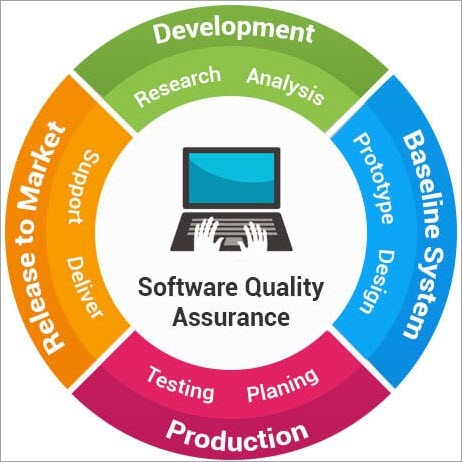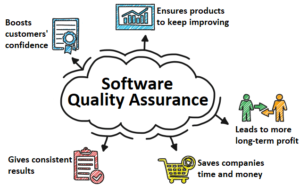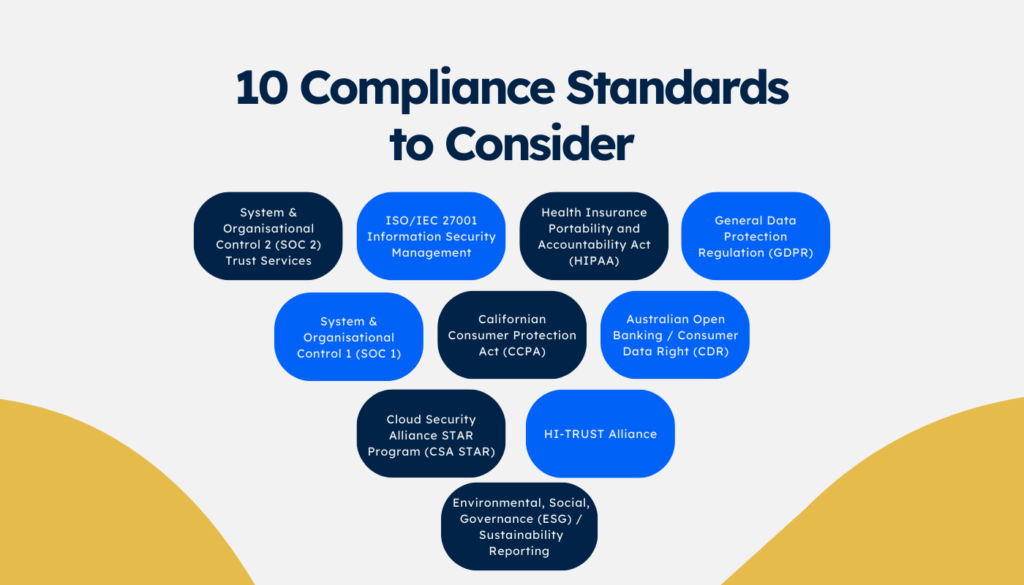Software Quality Assurance (SQA) is a systematic process designed to ensure that software meets specified quality standards throughout its development lifecycle. It involves various activities like testing, reviews, and audits to detect and prevent defects before the software is released. SQA is crucial because it ensures software reliability, security, and performance, helping businesses deliver high-quality products that meet user expectations and reduce costly errors.
“Software Quality Assurance (SQA) ensures software meets quality standards through testing and reviews. It is crucial for preventing defects and ensuring reliability.”
In this article, We will discuss “what is software quality assurance and why it is important”
Key Components of Software Quality Assurance:

SQA covers a wide range of processes and activities that work together to ensure software quality. Some of the most critical components include:
1. Requirement Analysis:
Before any code is written, SQA professionals work with stakeholders to define what the software should do. Clearly defined requirements are essential for ensuring the software meets its intended purpose. Ambiguous or incomplete requirements can lead to misunderstandings that result in costly rework later in the project.
Requirement analysis ensures that software aligns with its intended purpose by defining clear, detailed requirements to avoid misunderstandings and rework.
2. Test Planning:
A key part of SQA is creating a comprehensive test plan. This outlines how the software will be tested, including what types of tests will be used, the resources required, and the schedule for testing. By having a solid test plan, teams can ensure they are covering all necessary areas of the software and minimizing the risk of missing defects.
Also Read: What Is Pad Software – A Guide To Portable Application Description!
3. Code Reviews:
Regular code reviews are an essential aspect of SQA. This process involves developers checking each other’s code to ensure it adheres to coding standards and does not introduce bugs. Code reviews also promote knowledge sharing among the team, which leads to higher code quality overall.
4. Automated Testing:
Automation plays a key role in modern SQA. By automating repetitive tests, teams can save time, increase accuracy, and ensure the software works correctly across different environments. Automated testing is particularly effective for regression testing, where previously developed and tested software is rechecked after changes are made.
5. Manual Testing:
While automated testing is highly efficient, manual testing is still essential for exploring edge cases, usability issues, and other complex scenarios that may not be easily automated. Testers manually interact with the software to ensure it behaves as expected from an end-user’s perspective.
6. Performance Testing:
Software performance is a critical quality factor, especially for applications with a large number of users or high data traffic. Performance testing involves evaluating how the software behaves under various loads to ensure it can handle real-world usage without crashing or slowing down.
7. Security Testing:
With the growing number of cyber threats, ensuring the security of software is a top priority. Security testing identifies vulnerabilities and weaknesses that could be exploited by attackers, ensuring that sensitive data is protected. Security testing not only safeguards sensitive data but also enhances the overall trustworthiness of the software by ensuring it is resilient against potential cyber attacks.
8. Documentation and Auditing:
Proper documentation is essential for maintaining software quality. This includes writing clear and detailed reports of test results, as well as documenting any issues found and how they were resolved. Audits are also conducted to ensure that the software complies with industry standards and regulations.
Why is Software Quality Assurance Important?

The importance of Software Quality Assurance cannot be overstated. Here are several key reasons why SQA is crucial to the software development process:
1. Prevents Defects and Bugs:
One of the primary goals of SQA is to detect and prevent defects before they reach the end user. By identifying and addressing issues early, SQA reduces the risk of releasing flawed software that could lead to functionality problems, crashes, or security vulnerabilities.
2. Ensures Reliability and Performance:
High-quality software should perform consistently under different conditions and be able to handle a range of user inputs. SQA helps ensure that the software performs reliably, even when faced with heavy traffic, large datasets, or complex workflows.
Also Read: Is Cxt A Transportation Management Software – Key Features Explained!
3. Enhances Security:
In today’s digital landscape, data breaches and cyber-attacks are significant risks. SQA includes rigorous security testing to protect against vulnerabilities, ensuring the software is secure and capable of safeguarding user data from potential threats.
4. Cost-Effective:
It’s much more expensive to fix bugs after the software is released than to catch them during development. By implementing SQA practices throughout the development process, organizations can reduce costly post-release issues and the time needed for fixes, ultimately saving money in the long run.
5. Improves User Satisfaction:
High-quality software that works as expected will satisfy users, leading to positive reviews, higher retention rates, and more word-of-mouth referrals. Poor-quality software, on the other hand, can frustrate users, resulting in negative feedback, lost customers, and reputational damage.
6. Compliance with Standards:

Many industries have stringent standards and regulations that software must meet, such as the ISO 9000 family of quality management standards. SQA ensures that the software adheres to these standards, helping companies avoid fines, legal issues, and compliance risks.
7. Fosters Continuous Improvement:
SQA promotes a culture of continuous improvement by encouraging teams to learn from mistakes and apply these lessons in future projects. Regular feedback from testing, reviews, and audits enables teams to enhance processes, leading to better software over time.
8. Reduces Risk of Failure:
Software projects, especially large ones, are prone to failure if not properly managed. SQA minimizes this risk by ensuring that all aspects of the software development process are carefully monitored and that any issues are addressed promptly.
Also Read: Can I Do Software Engineering With A Computer Science Degree – Become Software Engineer Via CS!
9. Promotes Collaboration:
SQA fosters communication and collaboration among team members, encouraging developers, testers, and other stakeholders to work together toward a common goal. This leads to a more cohesive team effort, which ultimately results in a better product.
Best Practices in Software Quality Assurance:
To implement SQA effectively, organizations should follow these best practices:
- Integrate QA Early: Involve QA teams from the beginning of the software development lifecycle. Early involvement helps identify potential issues before they become significant problems.
- Use Agile and DevOps Methodologies: Agile and DevOps approaches encourage collaboration and iterative development, which can help deliver high-quality software more quickly.These methodologies also enhance communication and feedback.
- Focus on Continuous Testing: Continuous testing throughout the development process helps identify and address This proactive approach allows teams to deliver high-quality software more rapidly and ensures that any defects are resolved before they can impact the final product.
- Automate Where Possible: Automation can significantly increase the efficiency and effectiveness of the testing process. However, it’s important to balance automation with manual testing to ensure thorough coverage.
- Monitor Key Performance Indicators (KPIs): Track key metrics such as defect density, test coverage, and time to fix issues. These KPIs help measure the effectiveness of the SQA process and identify areas for improvement.
- Encourage Open Communication: A successful SQA process relies on clear communication between all team members. Encourage open feedback and collaboration to ensure that potential issues are discussed and resolved quickly.
FAQ’s
What is Software Quality Assurance and Why is it Important?
1. What is Software Quality Assurance (SQA)?
Software Quality Assurance (SQA) is the process of ensuring software meets quality standards by monitoring all stages of development, including testing, reviews, and audits.
2. How does SQA prevent defects in software?
SQA detects issues early in the development process through rigorous testing, code reviews, and audits, helping to prevent defects from reaching the final product.
3. Why is SQA crucial for software reliability?
SQA ensures software performs consistently and reliably by testing it in various environments and scenarios, reducing the risk of failure.
4. Is SQA cost-effective for software development?
Yes, by catching and fixing issues early, SQA saves time and resources, preventing expensive post-release fixes and minimizing development costs.
5. How does SQA improve customer satisfaction?
SQA ensures the delivery of high-quality, reliable software, which leads to better user experiences, fewer issues, and higher customer satisfaction.
Conclusion
Software Quality Assurance (SQA) is essential for delivering reliable, secure, and high-performing software. By preventing defects, ensuring compliance with standards, and improving user satisfaction, SQA plays a critical role in the success of software projects. Implementing effective SQA practices leads to better software quality and cost savings.



